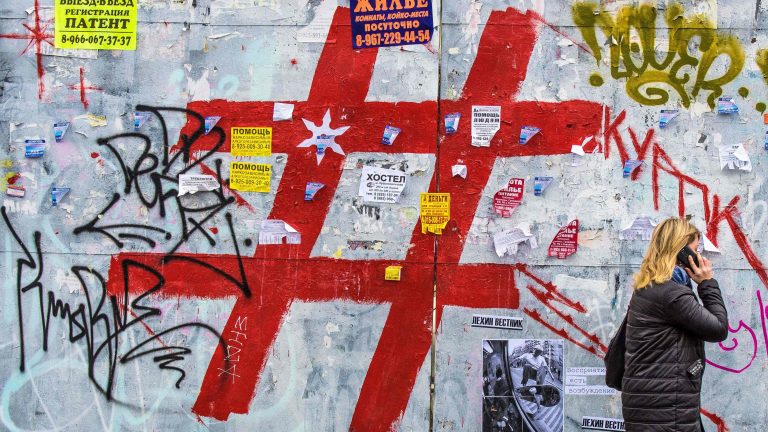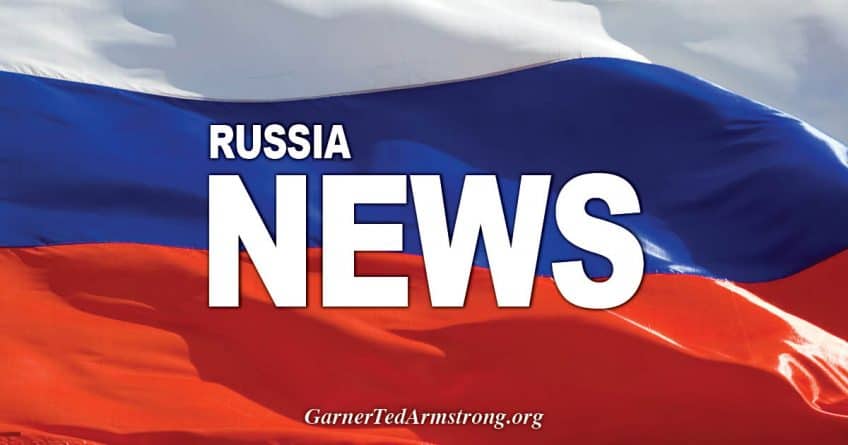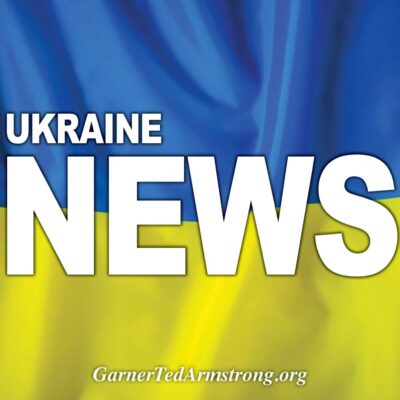Reminder: Internet censorship can have unintended consequences.

Mladen Antonov/AFP/Getty Images
Russian internet users began noticing something strange on Wednesday: a number of websites, including the Kremlin’s own Kremlin.ru, were down. Just hours earlier, Roskomnadzor, the Russian government body overseeing communications and technology, announced that it was purposely slowing down access to Twitter, claiming the company had allowed over 3,000 posts featuring suicide, child exploitation, and drug use to remain up in violation of Russian law.
But the outage that followed affected far more than just the social media site, including domains like Reddit.com and Microsoft.com. The Russian government appears to have bungled its latest attempt at internet censorship, accidentally blocking its own websites in the process. And this isn’t even the first time it’s made a similar mistake in the last few years.
“With the aim of protecting Russian citizens and forcing the internet service to follow the law on the territory of the Russian Federation, centralized responses have been taken against Twitter starting March 10, 2021 — specifically, the initial throttling of the service’s speeds, in accordance with the regulations,” Roskomnadzor said in a statement.
Twitter is not particularly popular in Russia, compared to other platforms like YouTube or Telegram. One report estimated there were less than 700,000 active users in the country. But the site is used by journalists, researchers, and other public officials. Opposition leader and anti-corruption campaigner Alexey Navalny has 2.6 million followers on the platform.
“We remain committed to advocating for the Open Internet around the world and [are] deeply concerned by increased attempts to block and throttle online public conversation,” a spokesperson for Twitter said in a statement. They added that the company has “a zero-tolerance policy” for content related to child exploitation and noted it’s against Twitter’s guidelines to encourage self-harm or illegal activities.
Experts who spoke to Rest of World said they may have identified at least a partial explanation for the disruption. When the Russian government tried to block t.co, Twitter’s link-shortening service, it looks as if it accidentally blocked any site including the characters “t.co.” Doug Madory, director of internet analysis at Kentik, a company that analyzes network performance, said he noticed a 24% drop in traffic going to Rostelecom, a Russian state telecommunications company, at around the same time internet users in the country began reporting issues. It’s still not clear why other sites that don’t end in t.co were also blocked or throttled, but Madory said it’s possible that there could be more than one action accounting for the disruption.
“Russia uses deep packet inspection appliances in order to censor internet traffic,” Madory said, noting that the practice is not unique to Russia. If a domain request coming from a person’s phone or computer matches the domains that the government wants to block, users can be prevented from accessing that particular website. In this case, one of those domains appears to be t.co. “By not bounding that matching — we call it a ‘regular expression’ — then anything with that substring in it would match. It’s a very common IT problem,” Madory explained.
Publicly, the Russian government blamed the mass outage on a router failure, but Madory said it’s unlikely that a large, unrelated disruption affecting several sites would have occurred right after the government began throttling Twitter.
The crackdown on Twitter comes just weeks since widespread protests erupted across Russia after Navalny was arrested and jailed, following his return to the country earlier this year. In the days leading up to the rallies, Roskomnadzor attempted to pressure TikTok to remove videos encouraging citizens, particularly young people, to go out and protest. In the aftermath, the government said it would fine Facebook, Instagram, Twitter, TikTok, and YouTube, as well as domestic sites like VKontakte and Odnoklassniki, for leaving up content that encouraged participation in the demonstrations. The government cited a controversial law, which took effect in early 2021, that imposes fines on social media companies that leave up any content it deems to be illegal.
In April 2019, the Russian government passed a separate “sovereign internet” law compelling internet service providers to install equipment that would allow the government to surveil users and block content. The legislation is part of a broader attempt to build a “Russian firewall” that would isolate the country’s internet infrastructure from the rest of the world. It might sound like China’s Great Firewall, but experts say there’s a key difference.
“Russia is not like China,” said Natalia Krapiva, a technology lawyer at Access Now, a digital rights nonprofit. “In Russia, the internet has been relatively free, there are many businesses and individuals that rely on payment services, social media, and big international companies like Google.” The Kremlin’s strategy is to control, rather than cut off internet access, which would be difficult to accomplish. “At this point, the Russian government does not have the expertise or resources to execute something like this,” said Krapiva. “But [throttling Twitter] is a sign that Russia is going to be more aggressive in its responses.”
In the first half of 2020, Russian authorities sent nearly 9,000 removal requests to Twitter, only 23% of which it complied with, according to the company’s transparency report. In total, Russia accounted for more than one-fifth of all removal requests Twitter received globally during that time period, despite accounting for only a small fraction of its user base.
This is not the first time that Russian government attempts at controlling the internet have backfired. In 2018, Roskomnadzor tried to block access to Telegram, the popular encrypted messaging service, arguing that it was a tool for terrorism. The government’s ham-handed approach censored thousands of unrelated IP addresses by accident. Telegram, relatively untouched, continued to gain users and was officially “unblocked” in Russia last year.
[Disclaimer]








